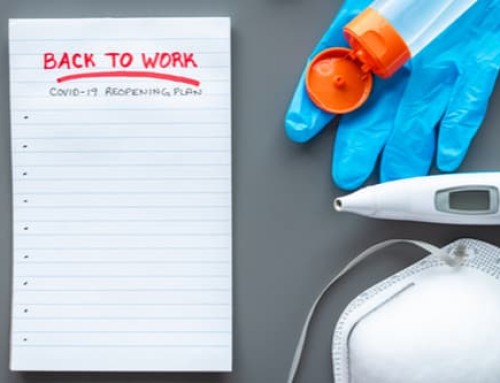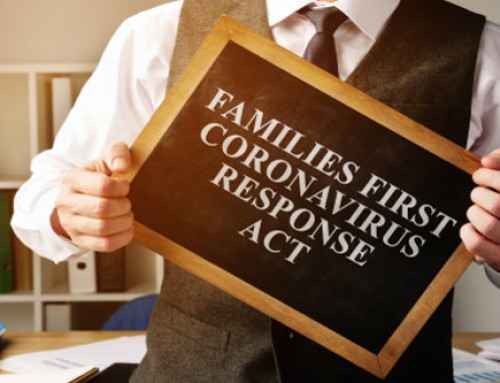The novel coronavirus, which causes the respiratory disease COVID-19, has not caused widespread infections in the United States as it has in China, Italy, Iran, and other areas. However, the CDC estimates that it is likely that widespread transmission of COVID-19 will occur in the United States. It is a good idea for employers to prepare now, while the disease is relatively localized.
Keeping the Doors Open
Now is the time to determine the likelihood of interruptions to critical parts of your operations. For example, if your business depends on certain supply inputs, how will you maintain operations if your normal supply channels are interrupted due to business closures, port closures, or the like? Similarly, if schools and childcare facilities close, will the increased absenteeism impact your ability to keep your operations online? Employers should evaluate the risk to their operations of interruptions of the various inputs into their business and determine how to respond to those risks.
Travel
Employers should consider limiting non-essential international business travel, particularly to regions impacted by COVID-19. Even travel to areas not impacted currently may be problematic. For example, an outbreak in an area that was not previously impacted may result in local health authorities restricting travel out of the newly impacted area. This could result in employees being unable to get home. If COVID-19 infections increase in the U.S., employers may want to limit travel domestically too.
Employers may also want to consider canceling or postponing large gatherings, or scheduled conferences or meetings in large metropolitan areas. Particularly if U.S. cases of COVID-19 rise, such “congregate settings” likely will increase the chance of spread among your workforce.
Some employees travel for personal reasons – for example, to visit family or for vacations. Employers should consider requesting or requiring employees who plan to travel internationally, or to impacted regions, to notify management in case decisions need to be made to restrict the employee from coming to work upon return.
Quarantine
Currently, public health authorities are not publicly discussing quarantine plans. However, public health authorities (such as the federal Centers for Disease Control or state health departments like the South Carolina Department of Health and Environmental Control) may issue quarantine orders for individuals that have had close contact with infected persons.
While employers cannot generally quarantine their workers, they can restrict them from coming to work. Employers should consider under what circumstances they will ask employees to stay away from workplaces, for how long, and what criteria to use evaluate their return to the workplace.
As a general rule, employers are not permitted to require medical examinations or conduct medical screenings of employees under the Americans with Disabilities Act (ADA). However, the law also allows employers to conduct such screenings when they are job-related and consistent with business necessity. Thus, an employer seeking to ensure that an employee is not contagious before allowing the employee back into the workplace likely would be able to require screening of the employee by a healthcare practitioner. Like all such screenings, the results are confidential medical information that must be kept separate from an employee’s personnel file and in a secure location with limited access.
Work from Home
Some employees may be able to work from home, helping to keep the business going and minimizing the chances that they are exposed to COVID-19, or expose others. In addition to determining which employees may work from home, employers will need to work through logistical issues such as secure computers and devices and proper internet access. Employers also need to consider how employees working remotely should report their work time (if they are not exempt from minimum wage and overtime requirements) and whether the home (or other) workspace is safe and suitable for the work to be done remotely.
Time Off from Work
Some employees may not be able to work from home but may have to remain out of the workplace. For example, if an employee has just returned from an area impacted by COVID-19, the employer may ask him or her to stay home until it is clear that symptoms will not develop. Or, the employer may decide to close a workplace that has become impacted, or before it becomes impacted, by the virus. Will employees that can’t work from home be paid during their absence? If so, will the paid leave have to come from sick or annual leave balances?
The answer to these questions likely will draw from varying sources: employer policies, collective bargaining agreements (if any), and state or local laws and regulations. In addition, the federal Fair Labor Standards Act generally requires that employees who are salaried and exempt from the minimum wage and overtime requirements be paid a guaranteed weekly salary. This means that if any exempt employee works any part of the workweek, he or she generally will be entitled to receive the full salary for that week.
Similar questions arise for employees that develop COVID-19 symptoms, but the answers may be more straightforward. An employee with COVID-19 likely will be entitled to PTO or sick leave under the employer’s policy just like any other sick employee. If the disease meets the definition of a serious health condition under the Family and Medical Leave Act (FMLA), he or she may also be entitled to job-protected leave. FMLA leave is generally unpaid, but many employers require employees to use their paid time off balances when on FMLA leave.
Occupational Safety and Health
It may be necessary for some workers to report to work even in the face of an outbreak. Emergency services, healthcare, and sanitation workers to name a few will be needed and, in some cases, needed even more urgently than in normal circumstances. Employers have a general duty under the occupational safety and health laws to provide employees a safe workplace that is free from unreasonable danger. In the context of COVID-19, there are several OSHA standards that likely apply. Healthcare, deathcare, and sanitation workers must be provided proper personal protective equipment (PPE) to shield them from exposure to the virus. Where respirators are needed, the employer must have a respiratory protection program that meets OSHA standards. Bloodborne pathogen standards require employers to consider and guard against exposure to COVID-19 from blood and bodily fluids. Employers that need to undertake cleaning of surfaces must be mindful not only of required PPE but also of hazard communication and labeling requirements for chemicals used in cleansing.
Closing Down
Some employers may find it necessary to close a workplace. In addition to considering whether impacted workers will be able to work from home, or be paid for time missed from work, employers may have other responsibilities. The WARN Act, a federal law, generally requires employers to give 60 days notice of a plant closing to employees, their bargaining representative if any, the local government, and the state dislocated worker unit. However, the law is generally limited to closings that cause a loss of employment, including layoff, for more than 6 months, or that result in a 50% reduction in an employee’s hours of work in each month of a 6-month period. The law also applies only to employers with at least 100 employees and generally does not apply to public sector employers. Even where the law does not apply, employers are encouraged to give the notices required by the law. Some states may also have laws that apply when the WARN Act does not.
Employees may be eligible for partial unemployment benefits during shutdown periods. In South Carolina, Employers may file on behalf of their workers in such cases, for up to six weeks, but must make arrangements in advance with the Department of Employment and Workforce. As a general matter, workers who are unemployed through no fault of their own during a temporary shutdown may be eligible for unemployment. Workers who are compensated during a shutdown with paid time off, or with regular wages, are likely not eligible. However, it is important to remember that unemployment determinations are made on a case-by-case basis.
Infectious Disease Outbreak Response Plan
The CDC recommends that employers develop an infectious disease outbreak response plan to help ensure business continuity and protect workers. In addition to the considerations set out above, such plans should indicate who has the authority to make decisions, when or what triggers will implement phases of the plan, and any changes that may be needed to existing policies to accommodate the flexibility needed to respond to the situation.
Need Help?
If you need help developing a plan to respond to COVID-19 or have questions about specific obligations or situations that arise, contact one of the employment lawyers at Gignilliat, Savitz & Bettis for assistance.






